Fears among farmers about the length of this winter and the shortage of feed supplies continue to escalate.
The Irish Farmers Journal has been covering the fodder concerns of farmers in the northwest for weeks but the problem has intensified, with some stock now housed for two months.
For farmers in the worst affected areas, cattle are eating through winter fodder stocks months ahead of time.
Adrian Kelly,
Cloone, Co Leitrim
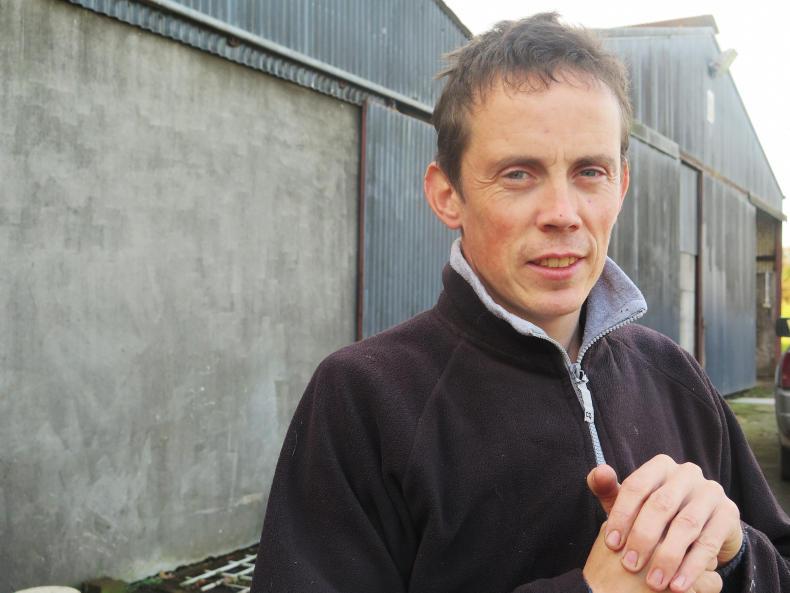
Adrian Kelly is a suckler farmer from Cloone in Co Leitrim. He has had his cows housed since August.
The land in Cloone is heavy and the winters are long. The traditional turnout date here is May day, but Kelly and his neighbours barely had the cattle out this year before they were back in again.
“There are a right lot of lads around here that have had cattle housed since the Cloone Show [August bank holiday weekend]. That’s the truth.
“We’re feeding four bales per day for the past good while. You can do your own maths there. It’s serious. It’s a battle.”
Adrian and his father John have 57 top-quality Continental suckler cows and both men say 2017 is as bad a year as either of them remember.
“We thought last year was bad. We all went on about last year being a disaster of a year but, in reality, this year is 100 times worse … way worse."
We got our slurry out OK earlier in the year but the tanks are building again.
Kelly, who works part-time in Carrigallen Mart as well as working with his brother’s contracting business, said the early winter has taken its toll on the suckler cow population in the county.
He says farmers are selling suckler cows in greater volume than other years.
The main weanling sales are over and instead of putting cows back in calf many cows are heading for the mart ring. More than 1,000 suckler cows were offered for sale through the county’s five marts in the past week alone.
Pat Gilhooley
, Aughnasheelin, Co Leitrim
Former Leitrim IFA chair and suckler farmer Pat Gilhooley is definitive in his assessment of the situation.
“We’re not looking at a fodder crisis. We are in a fodder crisis.”
Gilhooley said farmers in Sligo, Leitrim, north Roscommon, north Longford and south Donegal are in “dire straits”.
“I’ve no clue where this winter is going to go. It has been winter since July for most people in this county.
“We need help badly and I mean badly. The situation we have at the minute is the worst I remember in all my years of farming,” Gilhooley said.
Seamus Quinn is a suckler and sheep farmer in south Donegal as well as an agricultural contractor. He estimates somewhere between 500 acres and 600 acres remain to be cut in the region, with some farmers still waiting on first-cut silage.
“There are those farmers who have a bit of upland and lowland normally wouldn’t do first cut until 12 or 15 August … those farmers have absolutely no silage cut yet.
“There aren’t too many dairy farmers in this region but there’s a big enough man who has 55 acres of second cut yet to do.
"There’s a smaller dairy farmer too who also has none of the second cut done. He had to buy 100 bales and they’re all gone. He told me he’ll need another 250 bales and that might not be enough,” Quinn said.
“There will be a definite shortage. There’s no two ways about it."
Any silage that has been done since the end of July has been terrible quality and fields have been ripped asunder. I’ve had cows housed since the end of July.
Quinn said all farmers in the region have one thing in common – money is tight. “Whether the fodder thing is a famine or not, I’m not sure. But one thing is for sure, cashflow is a real, real problem.
“Farmers just don’t have it at the minute. They had to fork out a lot of money last year to buy fodder. The single farm payment [the old name for the Basic Payment Scheme] is out and gone again. Farmers just don’t have it [money] to spend. That’s what I’m most worried about.”
Support
While all farmers know there is little they can do to control the elements, they feel greater support should be afforded to them given the marginal nature of their farms. “The genomics [Beef Data and Genomics Programme] support is meaningless to farmers here. There are more farmers out of it than in it,” Kelly said.
“We need a real support. The support payment for the suckler herd needs to be €200/cow. On top of that, the ANC (areas of natural constraint) payment needs to be increased for farmers in the real heavy land. We’re severely disadvantaged here,” Kelly said.
Without increased support, Kelly, Gilhooley and Quinn all argue, farmers in these regions will become fewer and fewer.
“In this parish [Cloone] alone, there are two townlands that are flooded with forestry. Those two townlands are easily 75% or 80% now covered in trees,” Kelly said.
“That’s the future for farming here. Lads from Dublin or Spain with no connection to farming, coming in here, buying the land and putting it into forestry. We’re a dying breed.”
Read more
Aurivo to run fodder clinics
Farmers delay buying stock due to fodder price concerns
Fears among farmers about the length of this winter and the shortage of feed supplies continue to escalate.
The Irish Farmers Journal has been covering the fodder concerns of farmers in the northwest for weeks but the problem has intensified, with some stock now housed for two months.
For farmers in the worst affected areas, cattle are eating through winter fodder stocks months ahead of time.
Adrian Kelly,
Cloone, Co Leitrim

Adrian Kelly is a suckler farmer from Cloone in Co Leitrim. He has had his cows housed since August.
The land in Cloone is heavy and the winters are long. The traditional turnout date here is May day, but Kelly and his neighbours barely had the cattle out this year before they were back in again.
“There are a right lot of lads around here that have had cattle housed since the Cloone Show [August bank holiday weekend]. That’s the truth.
“We’re feeding four bales per day for the past good while. You can do your own maths there. It’s serious. It’s a battle.”
Adrian and his father John have 57 top-quality Continental suckler cows and both men say 2017 is as bad a year as either of them remember.
“We thought last year was bad. We all went on about last year being a disaster of a year but, in reality, this year is 100 times worse … way worse."
We got our slurry out OK earlier in the year but the tanks are building again.
Kelly, who works part-time in Carrigallen Mart as well as working with his brother’s contracting business, said the early winter has taken its toll on the suckler cow population in the county.
He says farmers are selling suckler cows in greater volume than other years.
The main weanling sales are over and instead of putting cows back in calf many cows are heading for the mart ring. More than 1,000 suckler cows were offered for sale through the county’s five marts in the past week alone.
Pat Gilhooley
, Aughnasheelin, Co Leitrim
Former Leitrim IFA chair and suckler farmer Pat Gilhooley is definitive in his assessment of the situation.
“We’re not looking at a fodder crisis. We are in a fodder crisis.”
Gilhooley said farmers in Sligo, Leitrim, north Roscommon, north Longford and south Donegal are in “dire straits”.
“I’ve no clue where this winter is going to go. It has been winter since July for most people in this county.
“We need help badly and I mean badly. The situation we have at the minute is the worst I remember in all my years of farming,” Gilhooley said.
Seamus Quinn is a suckler and sheep farmer in south Donegal as well as an agricultural contractor. He estimates somewhere between 500 acres and 600 acres remain to be cut in the region, with some farmers still waiting on first-cut silage.
“There are those farmers who have a bit of upland and lowland normally wouldn’t do first cut until 12 or 15 August … those farmers have absolutely no silage cut yet.
“There aren’t too many dairy farmers in this region but there’s a big enough man who has 55 acres of second cut yet to do.
"There’s a smaller dairy farmer too who also has none of the second cut done. He had to buy 100 bales and they’re all gone. He told me he’ll need another 250 bales and that might not be enough,” Quinn said.
“There will be a definite shortage. There’s no two ways about it."
Any silage that has been done since the end of July has been terrible quality and fields have been ripped asunder. I’ve had cows housed since the end of July.
Quinn said all farmers in the region have one thing in common – money is tight. “Whether the fodder thing is a famine or not, I’m not sure. But one thing is for sure, cashflow is a real, real problem.
“Farmers just don’t have it at the minute. They had to fork out a lot of money last year to buy fodder. The single farm payment [the old name for the Basic Payment Scheme] is out and gone again. Farmers just don’t have it [money] to spend. That’s what I’m most worried about.”
Support
While all farmers know there is little they can do to control the elements, they feel greater support should be afforded to them given the marginal nature of their farms. “The genomics [Beef Data and Genomics Programme] support is meaningless to farmers here. There are more farmers out of it than in it,” Kelly said.
“We need a real support. The support payment for the suckler herd needs to be €200/cow. On top of that, the ANC (areas of natural constraint) payment needs to be increased for farmers in the real heavy land. We’re severely disadvantaged here,” Kelly said.
Without increased support, Kelly, Gilhooley and Quinn all argue, farmers in these regions will become fewer and fewer.
“In this parish [Cloone] alone, there are two townlands that are flooded with forestry. Those two townlands are easily 75% or 80% now covered in trees,” Kelly said.
“That’s the future for farming here. Lads from Dublin or Spain with no connection to farming, coming in here, buying the land and putting it into forestry. We’re a dying breed.”
Read more
Aurivo to run fodder clinics
Farmers delay buying stock due to fodder price concerns






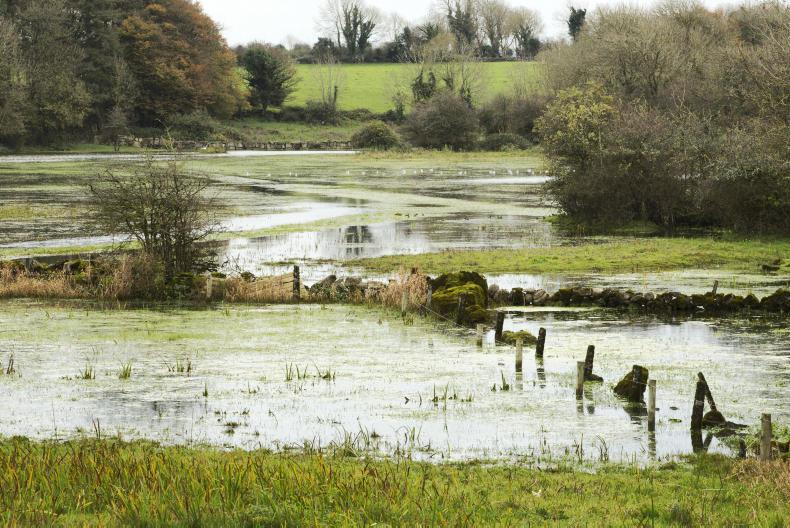
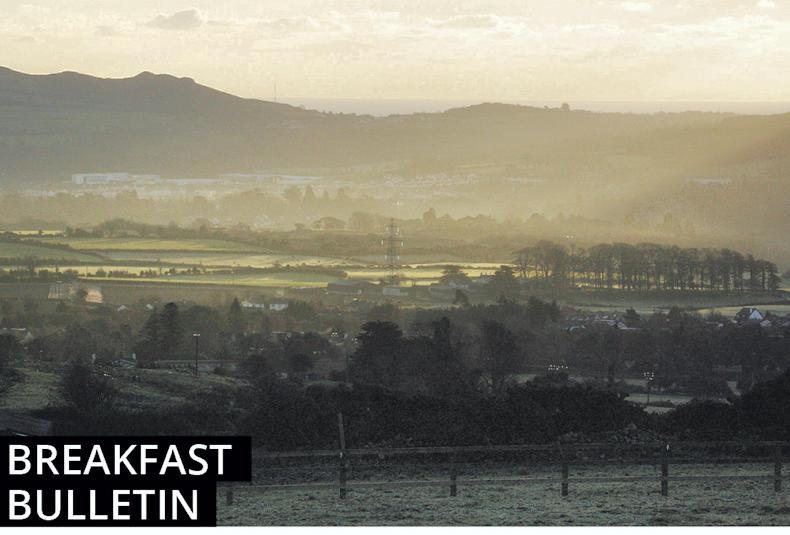
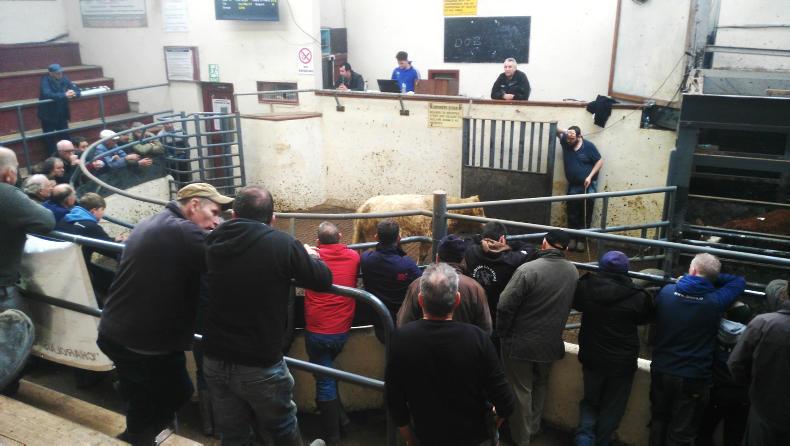
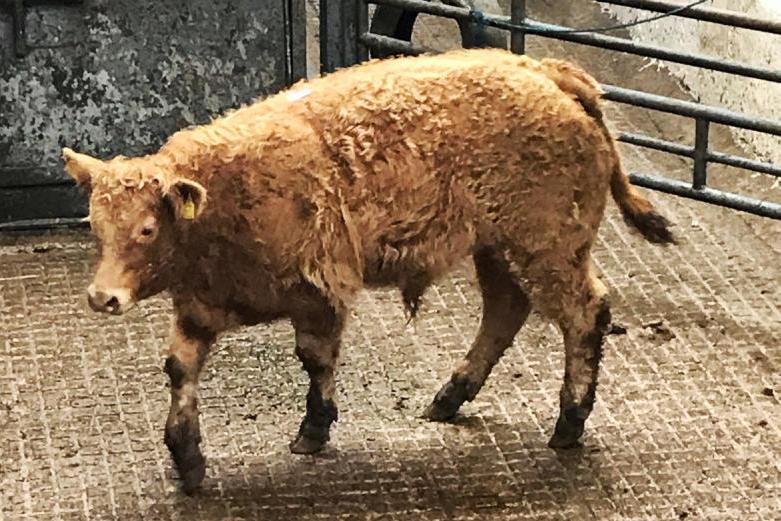
SHARING OPTIONS